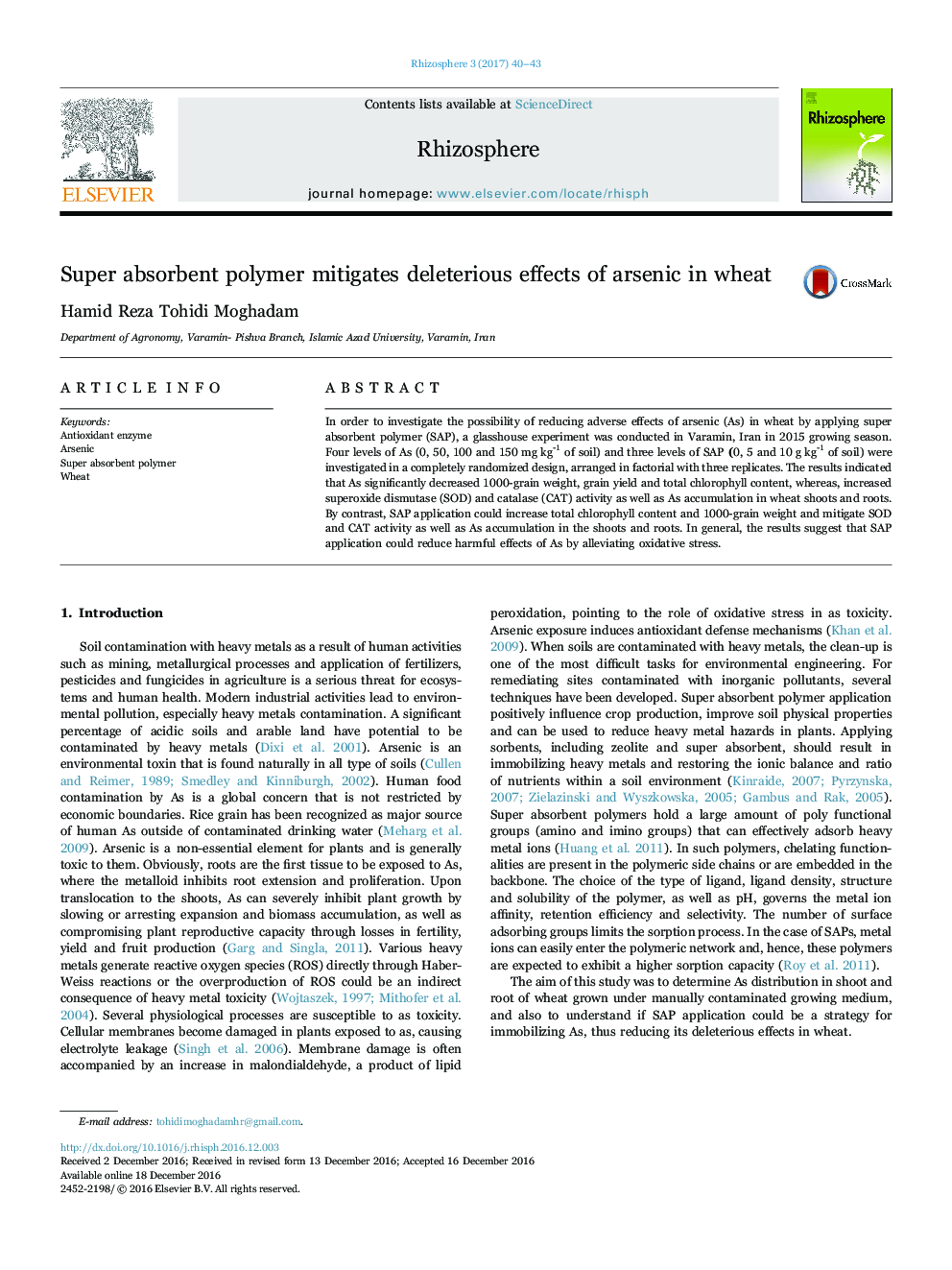| Article ID | Journal | Published Year | Pages | File Type |
|---|---|---|---|---|
| 5762849 | Rhizosphere | 2017 | 4 Pages |
Abstract
In order to investigate the possibility of reducing adverse effects of arsenic (As) in wheat by applying super absorbent polymer (SAP), a glasshouse experiment was conducted in Varamin, Iran in 2015 growing season. Four levels of As (0, 50, 100 and 150 mg kg-1 of soil) and three levels of SAP (0, 5 and 10 g kg-1 of soil) were investigated in a completely randomized design, arranged in factorial with three replicates. The results indicated that As significantly decreased 1000-grain weight, grain yield and total chlorophyll content, whereas, increased superoxide dismutase (SOD) and catalase (CAT) activity as well as As accumulation in wheat shoots and roots. By contrast, SAP application could increase total chlorophyll content and 1000-grain weight and mitigate SOD and CAT activity as well as As accumulation in the shoots and roots. In general, the results suggest that SAP application could reduce harmful effects of As by alleviating oxidative stress.
Related Topics
Life Sciences
Agricultural and Biological Sciences
Agronomy and Crop Science
Authors
Hamid Reza Tohidi Moghadam,
